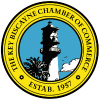In an era where the way we work is constantly evolving, the concept of flexible work environments has emerged as a game-changer for businesses worldwide. Envision a corporate culture where employees not only feel valued and supported but are also empowered to customize their work schedules to fit their lives. This dynamic shift is not just a trend but a transformative strategy that significantly boosts employee morale and engagement. Imagine the ripple effects: increased satisfaction, heightened commitment, and an overall more vibrant workforce. Explore how embracing flexibility can lead to elevated productivity, substantial cost savings, and a thriving organizational culture.
Elevating Employee Morale and Engagement
Imagine a workplace where your employees feel genuinely valued and supported. By embracing flexible work environments, you can significantly boost employee morale and engagement. When employees have the freedom to tailor their work schedules, they often feel more satisfied and committed. According to a SHRM survey, 79% of employees consider workplace well-being crucial for their job satisfaction. Recognizing employees regularly and offering competitive compensation packages are proven strategies to enhance morale. Additionally, leveraging technology through initiatives like virtual reality training and collaborative tools can further boost engagement. When your team feels valued, they are more likely to be productive and loyal to the organization.
Enhancing Productivity with Adaptive Work Schedules
Flexible work schedules can significantly boost productivity by allowing employees to work during their most effective times. This approach improves efficiency, morale, and overall work output. Companies that offer flexible hours experience higher retention rates, reducing turnover-related disruptions. Managers should adjust processes to support varying schedules while maintaining strong communication. A flexible approach fosters a more engaged and motivated workforce, aligned with organizational goals.
Crafting Robust Remote Work Agreements
Creating contracts for your remote employees is essential to set clear expectations and protect both parties legally. A comprehensive remote work agreement should include critical clauses such as work hours, salary structure, and information security measures. Here’s a solution: By utilizing digital tools, you can easily fill out and sign PDF forms online, eliminating the need for printing. Once documents are e-signed, they can be securely shared, ensuring compliance with global security standards. Using services like Remote, you can also navigate the complexities of international labor laws to ensure your contracts are legally valid in your employee’s country of residence.
Cutting Costs with Reduced Office Utilization
Flexible work environments can lead to significant energy savings for businesses by reducing the need for office space and resources. Remote work can lower heating demands, though cooling energy use may slightly increase. However, the overall energy costs from workstations remain minimal, making reduced on-site presence cost-effective. This approach also aligns with sustainability goals by lowering carbon emissions. Adopting flexible work arrangements enhances well-being while contributing to savings.
Accelerating Talent Acquisition through Flexibility
Flexible work environments can speed up hiring by attracting more motivated candidates. Positive recruitment experiences keep applicants engaged for future opportunities. Maintaining relationships with both current employees and past applicants helps create a ready-to-hire talent pool. Internal mobility strategies reduce onboarding time and make use of existing knowledge within the organization. Partnering with educational institutions can ensure a steady flow of prepared candidates.
Boosting Efficiency with AI Analytics
AI-driven analytics can provide valuable insights into employee productivity and workflow enhancements. Advanced analytics tools enable you to track key performance indicators and evaluate the impact of AI on daily operations. This data-centric approach helps identify bottlenecks, optimize processes, and ultimately improve efficiency. Comparing groups with and without AI integration through controlled experiments provides clear evidence of productivity gains. As AI technology continues to evolve, leveraging these analytics will be crucial for sustaining a competitive edge in the business landscape.
Enhancing Global Collaboration with Asynchronous Communication
Asynchronous communication methods are essential for accommodating varying time zones and work schedules in remote teams. By allowing team members to communicate and respond at their convenience, you can enhance efficiency and productivity, regardless of geographical location. This approach reduces the pressure to be constantly available and fosters thoughtful and well-considered responses. Employees can expect responses anywhere from 2 to 12 hours later, promoting a culture of focused work rather than incessant interruptions. Embracing this method leads to increased autonomy and improved workflow, crucial for maintaining a productive remote work environment.
Embracing flexible work environments is not merely a modern adaptation but a strategic evolution that redefines the traditional workspace. It’s a pathway to creating not only a highly motivated and productive workforce but also an agile, resilient organization ready to meet future challenges. By integrating flexible work practices, you connect deeply with your employees’ needs, fostering a sense of belonging and shared purpose. This paradigm shift doesn’t just promise a competitive edge—it ensures your organization thrives.
Discover the endless possibilities for your business with the Key Biscayne Chamber of Commerce, your gateway to success in our vibrant community!
